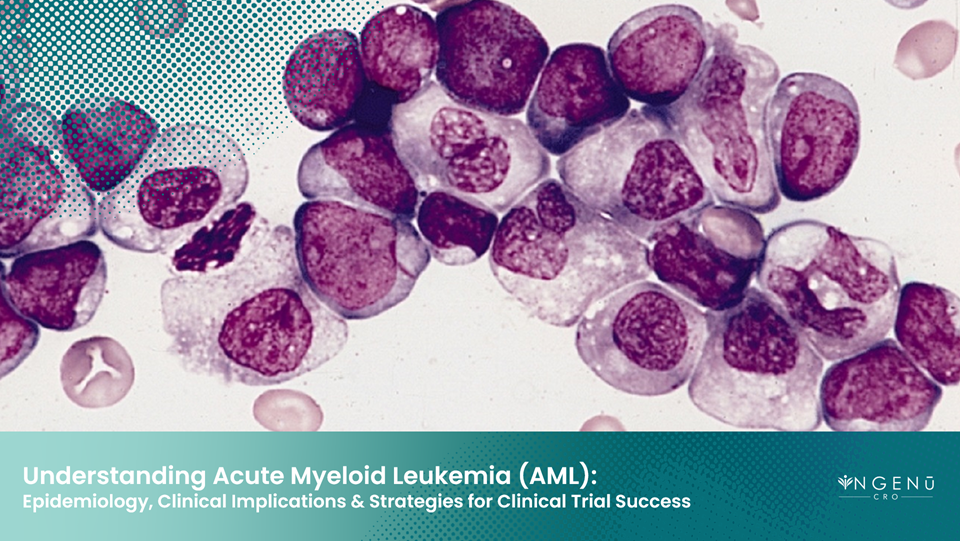Download our whitepaper,
"Acute Myeloid Leukemia (AML): Diagnostic Criteria, Drug Failures, and Trial Improvement Strategies"

What's Inside:
- Key FDA-Approved Pivotal Endpoints for Acute Myeloid Leukemia Clinical Trials.
- Optimizing Recruitment with Adaptive Trial Designs for Acute Myeloid Leukemia.
- Comprehensive Analysis of FDA-Approved Acute Myeloid Leukemia Drugs.
- How Diagnostic Criteria for Acute Myeloid Leukemia Have Evolved and Impact Research.
- Overcoming Common Pitfalls in Acute Myeloid Leukemia Clinical Trials.
- And additional insights to drive your trial's success.
Access your complimentary whitepaper today:
Acute Myeloid Leukemia
Acute Myeloid Leukemia (AML) is a life-threatening form of leukemia characterized by the rapid growth of abnormal white blood cells that accumulate in the bone marrow and interfere with the production of normal blood cells.
The understanding of AML has evolved significantly over the last few decades. Initially, treatments were non-specific and primarily palliative. The introduction of chemotherapy in the mid-20th century marked a significant advancement, although survival rates remained low. The classification of AML into subtypes based on the French-American-British (FAB) system in the 1970s further refined diagnostic and treatment strategies by categorizing the disease based on the morphology and maturity of affected cells. Recent years have seen a shift towards more targeted therapies, driven by deeper molecular and genetic insights.
iNGENū’s team of researchers and clinicians is dedicated to advancing AML research. Through innovative trial designs and a patient-centered approach, we work to accelerate the development of new treatments that could offer improved options and outcomes for those affected by AML.
Roughly
20k
new cases of AML are diagnosed annually in the United States
The median age of diagnosis for AML is
68
years old
The 5-year survival rate for AML is around
28%
varying based on age and other factors
Our clinical team has over
120
years of combined clinical trial experience